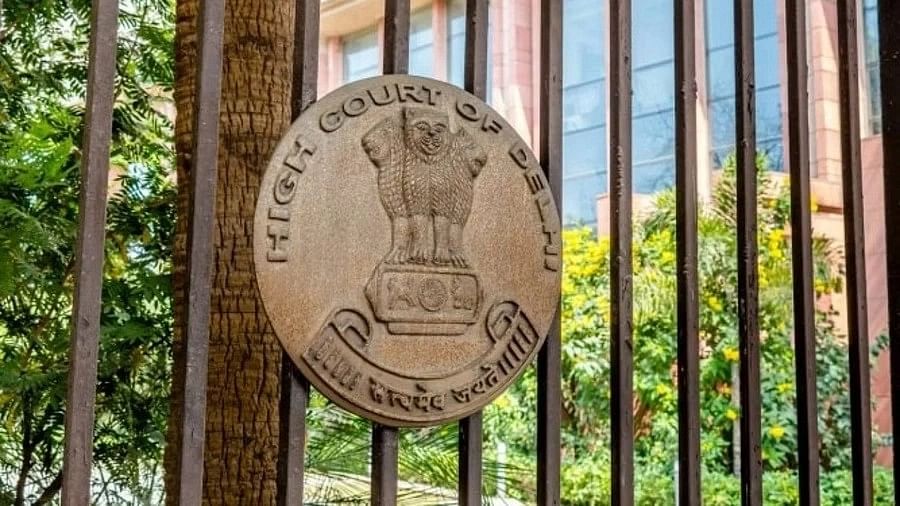
The Delhi High Court.
Credit: PTI File Photo
New Delhi: The Delhi High Court on Monday upheld the constitutional validity of Section 171 of the Central Goods and Services Tax (CGST) Act, 2017 which mandates that whatever the companies save in tax they must reduce in price.
The court said the anti-profiteering provisions in the 2017 law and the related rules are in the nature of beneficial legislation as they promote consumer welfare.
A bench of Acting Chief Justice Manmohan and Justice Dinesh Kumar Sharma passed the verdict on a batch of over 100 petitions by several entities, including Philips India, Reckitt Benckiser, Gillette India and Procter and Gamble Home Products.
"The constitutional validity of Section 171 of (CGST) Act, 2017 as well as Rules 122, 124, 126, 127, 129, 133 and 134 of the (CGST) Rules, 2017 is upheld," said the court.
The court said Section 171 mandates that a tax foregone has to be passed on as commensurate reduction in price and that it is a consumer welfare measure introduced in public interest.
The rules in question pertain to the establishment and functioning of the National Anti-Profiteering Authority (NAA).
The court said it was possible that there may be cases of arbitrary exercise of power under the anti-profiteering mechanism but the remedy lay in setting aside such order on merits and not striking down the provision itself which invests such power in the authority.
The petitioners, companies running diverse businesses, had approached the high court after they were directed by the NAA to pass on the commensurate benefit of reduction in the rate of tax or the Input Tax Credit to its consumers along with interest.
The court directed that the matters be listed for appropriate directions next month.
"This court clarifies that it is possible that there may be cases of arbitrary exercise of power under the anti-profiteering mechanism by enlarging the scope of the proceedings beyond the jurisdiction or on account of not considering the genuine basis of variations in other factors such as cost escalations on account of which the reduction stands offset, skewed input credit situations etc," the order said.
"The mandate of the Authority is very specific in nature and is akin to a fact-finding exercise. This Court is of the opinion that NAA is primarily a fact-finding body which is required to investigate whether suppliers have passed on the benefit to their recipients by way of reduced prices as mandated by Section 171 of the Act, 2017," it added.
The court observed that the GST collected by a seller on a higher price after the government sacrificed its revenue in favour of the buyer has rightly been included in the "profiteered amount" and section 171 mandates that "whatever is saved in tax must be reduced in price".
"The anti-profiteering provisions in the Act, 2017 and the Rules, 2017 are in the nature of beneficial legislation as they promote consumer welfare. The Courts have consistently held that beneficial legislation must receive liberal construction that favors the consumer and promotes the intent and objective of the Act," the court stated.
It held that section 171 did not violate Article 19(1)(g) [right to practice any trade or profession] of the Constitution of India as it was not a price-fixing mechanism, and the suppliers did not have any proprietary interest in the amount foregone by the government in favour of consumers by way of reduction in taxes.
"This Court is further of the view that the present batch of matters deals with amounts that the Revenue had foregone in favour of the consumers which however had been either wrongfully appropriated by the petitioners/suppliers and/or used in their business and/or used for cross-subsidisation and/or passed off as a special discount to the dealer or the consumer.
"Therefore, there cannot be any proprietary interest of the suppliers in such amount which the Government has foregone in favour of consumers by way of reduction in taxes and no legal or constitutional right can be asserted thereunder," the court said.
It, however, acknowledged that there can be no fixed or uniform method or mathematical formula for determining profiteering as the facts of each case and each industry may be different.
It also held that there was no basis for contending that unbridled powers have been given to the Authority or that there is a lack of appropriate mechanism for redress under the NAA scheme.
The court also rejected the petitioners' contention that section 171 was outside the law-making power of Parliament.